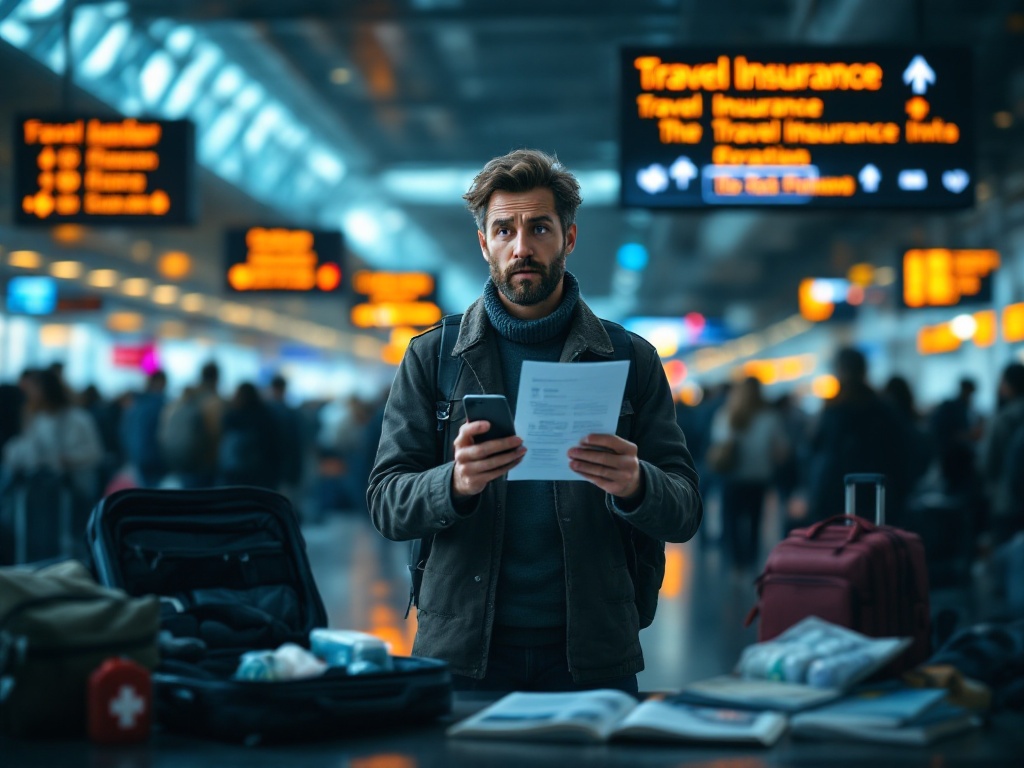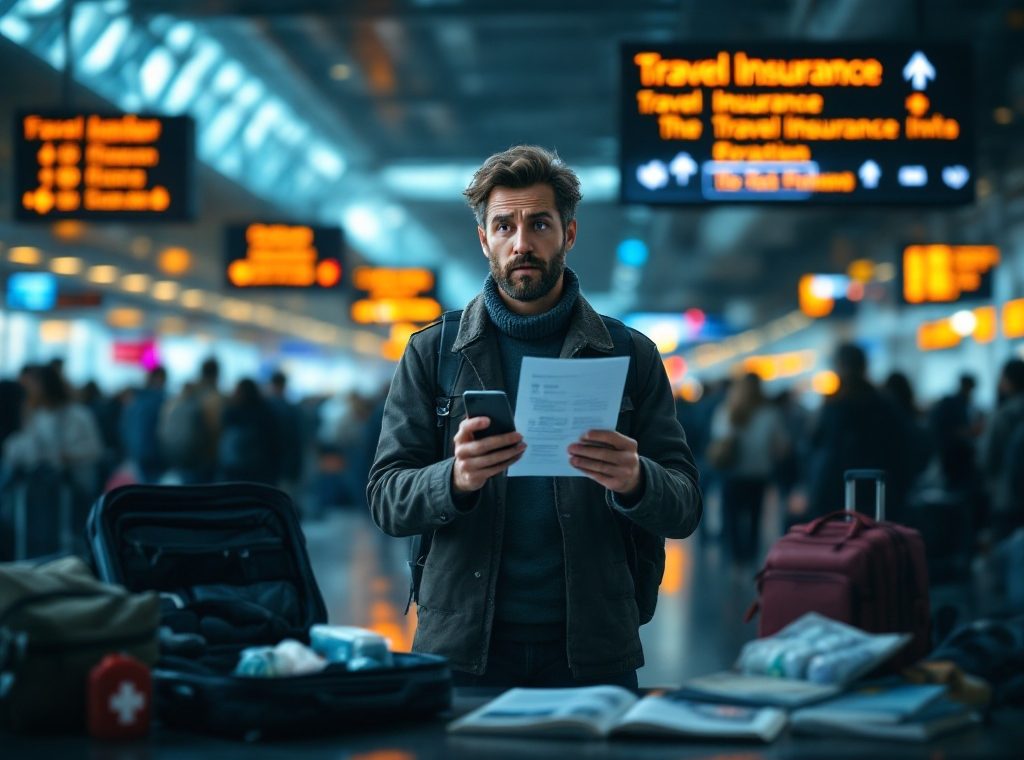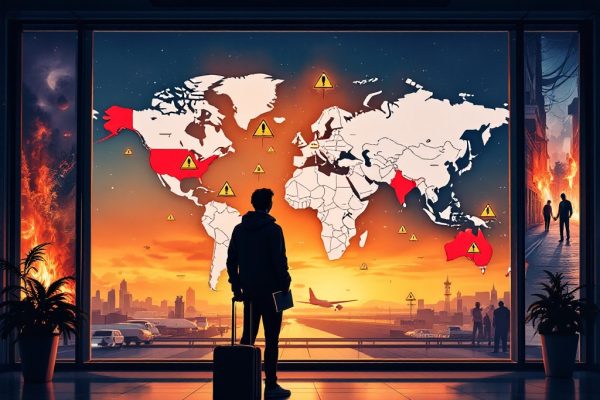How to Handle Emergencies While Traveling Abroad
Unexpected events can derail even the best-laid travel plans. From medical emergencies to lost passports, being prepared is crucial for a safe and enjoyable trip. This guide provides essential steps to prepare for travel emergencies, covering everything from securing travel insurance and creating contingency plans to understanding local healthcare systems and managing financial or passport crises. Learn how to research health risks, pack a comprehensive first-aid kit, and develop an evacuation plan. Empower yourself with the knowledge and resources to handle any travel challenge and ensure a worry-free adventure. Start preparing today!
Important information

- Research your destination: Find local emergency numbers, hospital locations, and your embassy or consulate’s address. Get travel insurance that covers medical problems, cancellations, and lost bags.
- Document and share: Copy your passport and insurance. Give your trip plan to a family member or friend so someone knows where you are.
- Pack essentials: Bring a first-aid kit and a list of emergency contacts (local services, your embassy, and personal contacts). Learn about local laws, customs, and what to do in emergencies. Knowing basic first aid is helpful.
- Medical readiness: Carry copies of important papers, including prescriptions. Research local healthcare options and emergency services. Be sure your insurance covers medical emergencies and getting you home if needed.
- Financial safety: Tell your bank about your travel dates. Have different ways to pay (credit cards, debit cards, traveler’s checks). Keep these separate from your main wallet, along with copies of card numbers and contact info. Carry some local cash.
Preparing for Travel Emergencies
Research and Preparation
Begin by researching your destination. Learn about local emergency numbers, hospitals, and your embassy or consulate’s location. Secure comprehensive travel insurance that covers medical emergencies, trip cancellations, and lost luggage.
Documentation and Sharing
Photocopy your passport and insurance policy. Share your itinerary with a trusted friend or family member. This ensures someone knows your whereabouts throughout your trip.
Essential Supplies and Information
Prepare a well-stocked first-aid kit. Compile a list of emergency contacts, including local emergency services, your embassy’s number, and personal contacts. Familiarize yourself with local laws, customs, and emergency procedures. Learn basic first aid.
Medical Preparedness
Carry copies of your important documents, including any necessary prescription medications. Research local healthcare facilities and available emergency services. Ensure your travel insurance covers medical emergencies and repatriation.
Final Check
Leave your itinerary and contact information with someone at home. This allows them to be aware of your plans and contact you if necessary.
Creating a Contingency Plan for Unexpected Situations
A solid contingency plan is essential for a smooth trip. It prepares travelers for unexpected issues, covering basic first aid and location-specific concerns like local emergency contacts. Sharing this plan with family members further reduces risks and promotes a safer journey. Planning ahead ensures confident travels.
Securing Travel Insurance for Emergencies
Safeguard your trip with travel insurance.
It covers unexpected medical expenses, like emergency evacuations.
Review your policy details to understand your coverage.
Should you need to file a claim, contact your insurer immediately.
Gathering and Organizing Emergency Documentation
Before embarking on your journey, organize essential travel documents. These include passport and visa copies, medical records, and contact information. This contact information should include your embassy or consulate, local emergency services, and personal emergency contacts. Ensure these documents are readily accessible both physically and digitally.
Emergency Preparedness and Safety Measures
Before embarking on your journey, take the time to research your destination’s local laws and customs. Understanding cultural norms not only demonstrates respect but also enhances your safety. Familiarize yourself with region-specific safety precautions, such as areas to avoid.
Stay informed about potential safety issues by monitoring local news and health alerts. Contacting your embassy or consulate can provide valuable guidelines and resources. Learning local emergency numbers and locating nearby hospitals is also recommended. Thorough preparation ensures a smoother, safer trip.
Understanding Local Laws, Cultural Norms, and Safety Precautions
Before traveling, research and understand the local laws and customs of your destination. This shows respect for the local culture and helps you avoid unintentional offenses. In the event of an emergency, prioritize your personal safety and cooperate with local authorities by following their instructions. This ensures a more effective and coordinated response.
Emergency Services and Evacuation Routes
Familiarize yourself with local emergency services and plan evacuation routes in advance.
When in public spaces or at your accommodation, locate emergency exits.
Keep essential contacts readily available, including local emergency numbers, your embassy or consulate, and your travel insurance provider.
Following Instructions from Local Authorities
In emergencies, follow guidance from local authorities. Stay informed by monitoring local news through television, radio, and official websites for essential updates.
Health and Medical Emergencies Abroad
Before traveling, take these steps to ensure your health and safety:
Research potential health risks at your destination and any required vaccinations.
Familiarize yourself with the local healthcare system.
Prepare a comprehensive first-aid kit including essential medications.
Create a medical emergency plan with important contacts, such as local emergency services, your doctor, and your insurance provider.
Make copies of important medical documents like prescriptions and vaccination records.
Consider learning basic first-aid techniques.
If you have pre-existing conditions, think about wearing a medical alert bracelet or necklace.
Researching Health Risks and Vaccination Requirements
Before traveling, research potential health risks at your destination. Consult your doctor about recommended vaccinations and necessary medications. For helpful advice specific to your trip, explore resources from the CDC and WHO to ensure a safe and healthy journey.


















